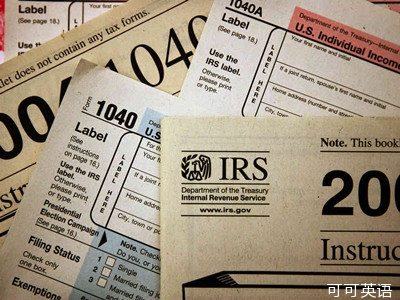JEFFREY BROWN:Yes, taxes are due on Monday. And, yes, once again, tax reform is in the air. It's been more than a quarter-century since the last overhaul, and now President Obama and key leaders in both parties say they'd like to work on simplifying the tax code.
But if the past is a guide, that it's much easier said than done. This week, the president brought back some of his longstanding proposals as part of his budget. They include capping itemized deductions and exemptions, such as the mortgage interest and charitable deductions, for wealthier households earning $250,000 dollars or more, tax increases on the foreign earnings of American companies, and a rise in taxes to at least 30 percent for individuals earning a million dollars or more.

We take a look at all of this now with David Cay Johnston, a columnist for Tax Analysts magazine and professor of law at Syracuse University College of Law, and Douglas Holtz-Eakin, an economist and president of the American Action Forum.
David Cay Johnston, let me start with you, and start with personal taxes that so many people face a deadline on. Help us think about possible reforms. What is the biggest problem with the system right now?
DAVID CAY JOHNSTON, "The Fine Print": Well, for most people, it is that they shouldn't have to file.
The government has all the information it needs for people who only get income from wages or pensions. And so if we excluded a small amount of money from dividends and interest, which we did do in the 1970s, we could eliminate tax filing for about 100 million of the 140 million people. So that is at the bottom end.
At the top end, we allow people to make unlimited amounts of money and not pay taxes on them if they run hedge funds or executives. They can defer the taxes into the future, sometimes decades into the future. And they can borrow in many cases against this money to live on and not pay taxes for a long time.
JEFFREY BROWN:Douglas Holtz-Eakin, first, respond to that. Does that sound look a good wish list?
DOUGLAS HOLTZ-EAKIN, Former Congressional Budget Office Director: Well, that's a good starting point.
I think the number one thing I would put on that list is the perceived fairness of the tax code.
JEFFREY BROWN:Perceived fairness?
DOUGLAS HOLTZ-EAKIN:The U.S. has relied on voluntary compliance. And it actually has by world standards a good tax code that people comply with.
If you lose faith in the fairness of the tax code, people don't comply, you start to have big problems. So ...
JEFFREY BROWN:And why have people lost faith?
DOUGLAS HOLTZ-EAKIN:They don't understand how the tax code works.
So, I think to begin the discussion on tax reform, you shouldn't talk about what we are going to go get, that sort of money-grubbing approach to tax reform that says, is, I'm going to go get that deduction, I'm going to go get that exemption, I'm going to go find their money, and instead say, we know the tax code is supposed to raise revenue, but what else do we want it to do?
Do we want it to support growth? Do we want it to hit some fairness objectives? Are we interested in social objectives, like owning a home, going to college? Should it be really simple? Should it be easy to comply with? Figure out what the tax code should mean so it means something and people can see it doing its job.
JEFFREY BROWN:So, why—David Cay Johnston, why doesn't that happen?
DAVID CAY JOHNSTON:Well, because we have all these interests that are out there promoting this or that.
We have driven up the cost of housing, for example, through the mortgage interest deduction, which is an upside-down deduction. The more money you make, the bigger the subsidy you get. And you have a whole industry that wants to support that. And I think Doug is exactly right.
We have to talk about what is it we want out of the tax code, what social benefits if any do we want, and how do we raise sufficient revenue? We're raising—per capita adjusted for inflation, we are taking in about 35 percent less in the income tax system than we were in 2000.
JEFFREY BROWN:Well, the Republicans talk about lowering rates, but broadening the base or widening the base.
DOUGLAS HOLTZ-EAKIN:Sure.
JEFFREY BROWN:How do you do that fitting into what we are talking about, simplifying and making people trust the system?
DOUGLAS HOLTZ-EAKIN:That's the conventional definition of tax reform, lower rates, broaden the base, have that base be the things we agree should be taxed, and have the things left out of the base be the things, charities or whatever it may be, that we agree should be exempt from tax.
So that's the recipe. We have seen bipartisan efforts that do that, Bowles-Simpson commission, for example, lower rates, broader-based rate, a lot more money, more than just the current amount. I think the real outlier has been in this administration's desire to have a broader base and higher rates. And that's no one's conventional definition of tax reform. And the question is whether you can get everybody to sign on to that.












